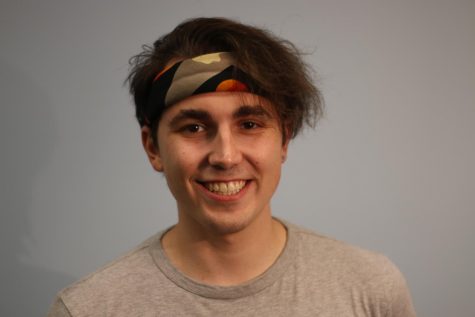CUE’s final recommendations miss the mark
September 21, 2018
Since its launch in January 2016, the Provost’s Commission on Undergraduate Experience (CUE) has been crafting a list of recommendations for Case Western Reserve University. These recommendations would target all aspects of campus, from curriculum to facilities, with the goal of “[strengthening] the overall value, reputation and desirability of CWRU’s undergraduate experience.” After occasionally releasing progress reports over the past two years, the Commission finally unveiled its list of formal recommendations on Sept. 12.
The document was, to say the least, underwhelming.
It began by identifying some metrics for evaluating the state of CWRU’s undergraduate experience. Based on the six-year graduation rate, satisfaction of graduating seniors and the percentage of seniors who would recommend the institution to people from their high school, CWRU has been struggling for the better part of a decade. These findings resulted in the founding of CUE and have been emphasized in every subsequent report.
In its preliminary recommendations, released last October, the CUE identified major concerns related to the campus’ culture, curriculum and administration. In this longer list of suggestions, the CUE hinted at numerous effective proposals and built anticipation for its later reports.
However, somewhere along the way CUE lost its steam. After two years, it presented findings in the form of three major recommendations: “Curriculum,” “Community & Campus Identity” and “Governance, Administration, and Budget.”
From the outset, these categories are too broad. There was some vagueness in the previous reports, but it was assumed that this would be clarified as the commission narrowed in on the topics it deemed most critical. This is not the case, especially in the case of the Community & Campus Identity section, where ambiguous language mars its description of both the issues and potential solutions.
The report identifies friction between science, technology, engineering and mathematics (STEM) and non-STEM majors, a lack of academic diversity and faculty-student relations as the essential Community issues to resolve. Yet, its proposed resolutions indicate a misunderstanding of what is weakening campus culture. Some student dissatisfaction is certainly derived from academic differences, but there are unrecognized issues that bear more weight.
For starters, the first-year living experience remains subpar. The dorms are still not air-conditioned, with generally outdated and cramped living spaces. Furniture that was supposed to be added this year has yet to appear, contributing to an overall unpleasant living experience. CUE’s recommendation for an updated orientation approach, based around “re-recruitment,” demonstrates a lack of awareness of the infrastructure issues truly contributing to retainment difficulties.
The idea that extending Orientation Week events into the academic year will be as effective as true structural changes to the first-year experience is simply incorrect. If the CUE considers renovations to the social sciences and humanities buildings necessary, then why not the dorms where first-year students spend a majority of their time? If not spent on dorm updates, the Mather Quad renovation money could still be put to more effective use. Rather than spending it on another Clark Hall facelift, CWRU could hire more faculty for the very departments that occupy the building.
Departments such as computer science and political science have been consistently understaffed for years now. The CUE’s mention of changes to faculty pertain primarily to training and retaining those who represent the diversity of CWRU’s campus. While it is crucial to foster a diverse pedagogical cohort, ensuring that departments have the staff to adequately teach its undergraduates should ultimately take priority.
One aspect of undergraduate education explicitly addressed by the CUE can be found in its recommendation that CWRU implement a university-wide general education requirement. In theory, this new curriculum design would phase out the Seminar Approach to General Education and Scholarship (SAGES) program, thus removing a generally unpopular part of the curriculum. But this complete overhaul of undergraduate coursework seems both unnecessary and equally as ineffective as what it intends to replace.
While SAGES was not well-liked, it was certainly repairable. Removing it in favor of a less flexible academic plan just creates a different set of headaches, giving undergraduate students a different set of course requirements they can disparage. A dedicated writing program has a place within an undergraduate curriculum if managed properly through better staffing and less rigorous work expectations. The CUE report requests the elimination of busy work, and that alone would refine SAGES’ general structure.
The concerns we’ve addressed don’t cover every detail of the report, but they draw attention to its most glaring oversights. And while much of our response has been critical, credit must still be given to the university for forming this commission, as it indicates a genuine interest in improving the undergraduate experience.
But if the university truly wishes to fix the problems identified by CUE, it may need to look beyond the scope of its recommendations.



